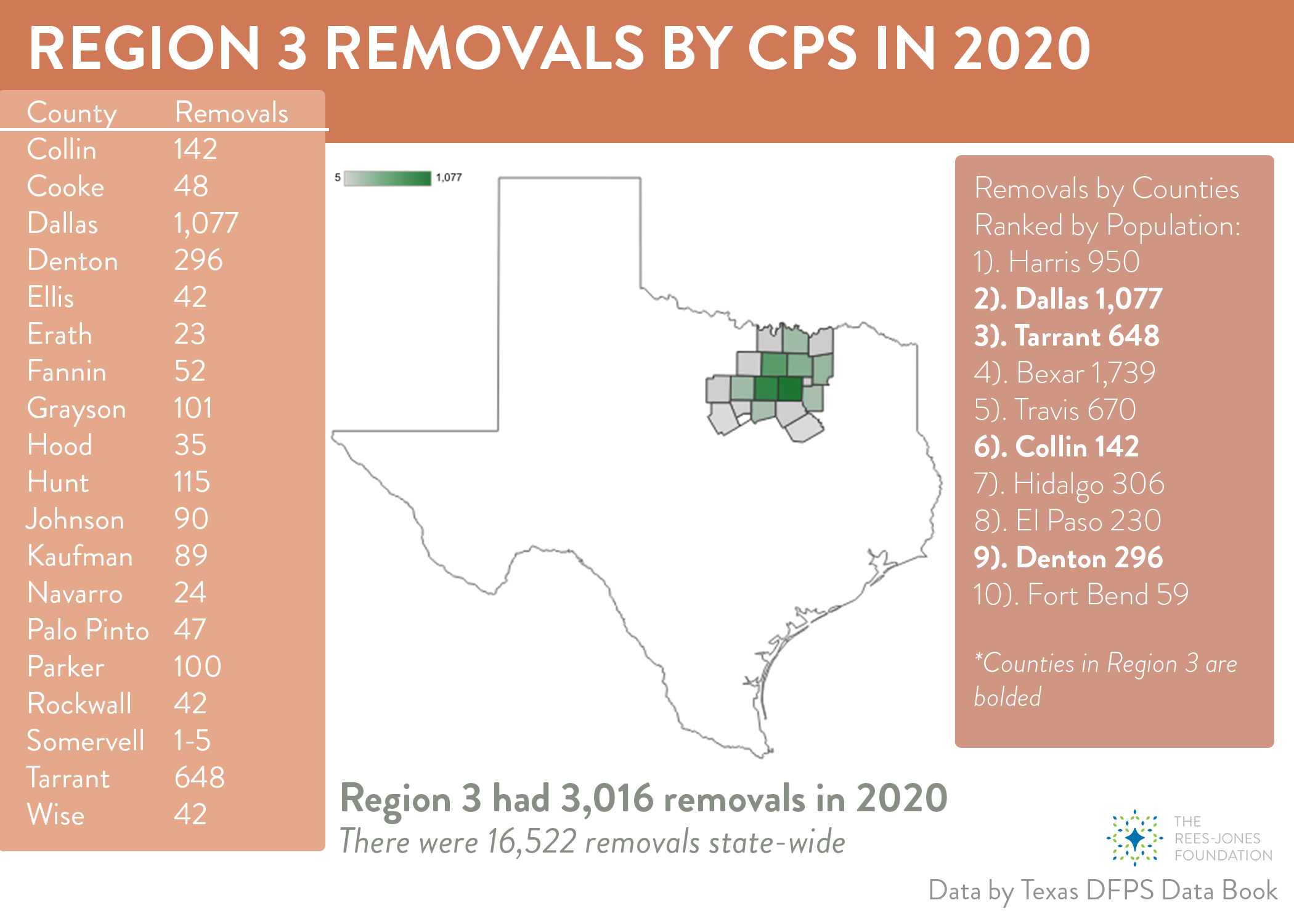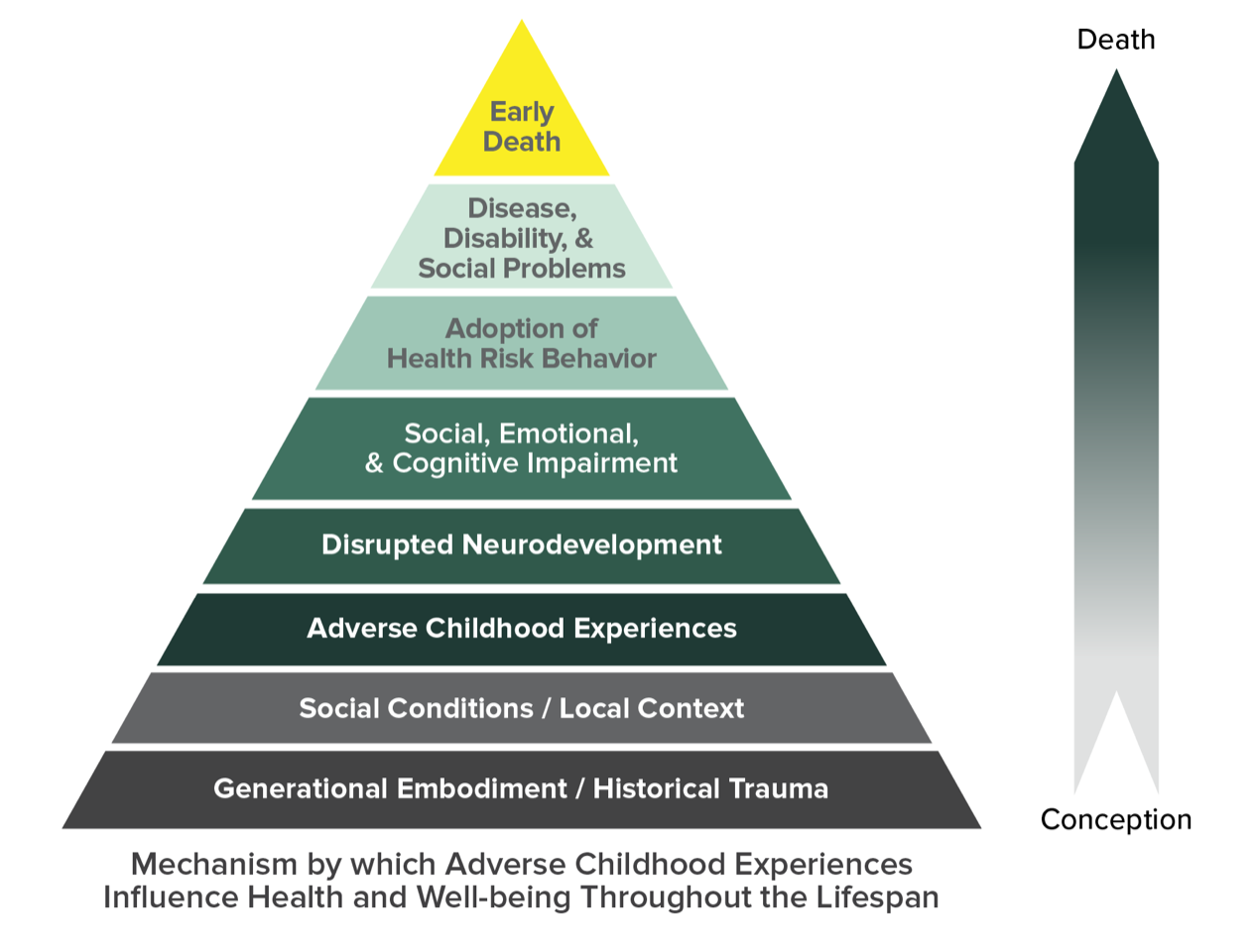January is Human Trafficking Prevention Month: Part 2 By: Justice Venture International [As we start the new…
Home Visiting Offers Child Abuse Prevention Solutions
April is Child Abuse Prevention Month
By Margaret Rees-Jones, Advisory Board Member for The Rees-Jones Foundation
I have often heard that parenting is the hardest (and best) job in the world. As a new mother to a seven-month-old son, I certainly relate to this statement. Over and over again, other parents tell me that the days (and the nights) are long, but that the years go by quickly. In our new roles as parents, my husband and I are more thankful than ever to live close to family and to have access to a robust support system. As I think about the responsibility of raising a child, I can’t fathom the challenges that come with being a parent without multiple levels of support. In these grueling, early years, it is critical to have this care and help in order to be the best possible parents to our children.
For the month of April, we are observing National Child Abuse Prevention Month. With all of this in mind, I want to take some time to examine the data we have surrounding child abuse and to take a deeper dive into what preventative measures look like in our city and beyond.
 According to the latest research by TexProtects, in Texas alone, 184 children are confirmed victims of abuse or neglect daily, more than 7 children are maltreated every hour, and more than 4 children die from abuse or neglect on average every week. According to the Texas Department of Family and Protective Services, in 2020, there were 3,016 removals in Region 3, including 1,077 in Dallas County and 648 in Tarrant County. In 2020, there were a total of 9,664 children in DFPS conservatorship in Region 3. These numbers are significant, and they represent a cohort of children who deserve our full attention.
According to the latest research by TexProtects, in Texas alone, 184 children are confirmed victims of abuse or neglect daily, more than 7 children are maltreated every hour, and more than 4 children die from abuse or neglect on average every week. According to the Texas Department of Family and Protective Services, in 2020, there were 3,016 removals in Region 3, including 1,077 in Dallas County and 648 in Tarrant County. In 2020, there were a total of 9,664 children in DFPS conservatorship in Region 3. These numbers are significant, and they represent a cohort of children who deserve our full attention.

The ACE Pyramid (Graphic provided by Center for Disease Control and Prevention).
Amongst other traumatic experiences, child abuse and neglect are considered Adverse Childhood Experiences (ACEs). These experiences can have devastating consequences on the long-term health of children and are linked to the development of risk factors later in life, which include chronic diseases, cognitive impairment, depression, violence, and suicide. Nearly half of children (42 percent) in the child welfare system have experienced at least four ACEs, compared to 12.5 percent of children in the general population, according to the U.S. Department of Health & Human Services. Tragically, these experiences can lead to a cycle of abuse and neglect that continues generation after generation. So how do we begin to break this cycle?
First, in order to think about prevention efforts, we have to understand why child abuse and neglect occurs. Often, children are removed from the home as the result of family violence, mental health challenges, willful neglect, or substance abuse disorders. An interim report to the 86th Texas Legislature stated that an estimated 68 percent of removals in Texas were related to substance use in 2018. It is imperative that we consider this context as we seek to provide solutions that look at the whole family system to prevent child abuse from occurring. The good news is that many organizations in our city are working to strengthen and support families so they can thrive.
Before jumping in to who is at work, it is worth mentioning the Family First Prevention Services Act (FFPSA), enacted by Congress in 2018, which will take effect in Texas later this year. This Act seeks to address gaps in our child welfare system by funneling more federal dollars into prevention services, such as substance abuse treatment or mental health care for caregivers. While the exact implementation of FFPSA is still uncertain in Texas, it is a critical step in thinking through the provision of direct services for families with children who are at-risk of removal.
Prevention Service Spotlight: Home Visiting
One evidence-based strategy that seeks to prevent child abuse and neglect by strengthening the family system is home visiting. Home visiting has been shown to dramatically improve outcomes for at-risk families. According to research by TexProtects, home visiting programs resulted in a 28-48 percent reduction in child abuse and neglect, and a 35-45 percent reduction in emergency room visits as a result of injury.
Home visiting meets parents exactly where they are. Depending on the program, a registered nurse, social worker, or other trained person visits parents at home to serve as a mentor, educator, and supporter. These experts are able to provide a healthy foundation for new parents by teaching important parenting skills and offering referrals to community organizations for additional resources like diapers or counseling services. Not only has home visiting shown excellent outcomes for preventing abuse and neglect, but it also improves both maternal and newborn health, setting mothers and their babies up for a successful start to life.
As a new mother myself, I have become deeply aware of all the things you just don’t know as a first-time parent. Everything from breastfeeding to learning your babies’ cues and cries—parenting is a steep learning curve. Seeing my older sister patiently respond to her children has taught me so much. She has shown me the way of responsive and sensitive caregiving, and I am so grateful to benefit from her years of experience and guidance. More than ever, I am aware of my need for mentorship and education as raising a child requires an entirely new skill set.
Home Visiting Service Providers
Nurse Family Partnership (NFP) has created a model of care that seeks to provide this critical support to mothers during pregnancy and for the first two years of life. Following this model, local partners like Parkland Hospital and Women in Need of Generous Support (WiNGS) are able to dispatch trained nurses into the home to build trusting relationships with mothers, providing a resource for advice. By empowering mothers to be the best caregivers they can be, these relationships have long-lasting benefits for families and their children. Through its partnerships, NFP has served 17,743 Texas families since 2006 and is currently operating in 55 counties around the state.
Another organization that supports parents alongside their children is Family Compass. Family Compass also delivers a variety of home visiting programs to better collaborate with parents and increase support networks for families. Home visitors provide one-on-one mentorship to parents in their homes. Beyond assisting with a child’s healthy development at home, Family Compass offers parenting classes to educate parents as they navigate their child’s earliest years.
These are just two examples of organizations working to provide meaningful support to families in order to lay a foundation of positive parenting behaviors. There is much work to do in our city and state to ensure our children are safe, but I think we can all agree that our children deserve the very best.
The Foundation’s Involvement
The Foundation works to alleviate conditions that are harmful to families or place children at risk of maltreatment by supporting organizations that provide prevention services, substitute care, and permanency options for children and youth. Through support for prevention services, the Foundation encourages healthy family functioning and resiliency of youth who have faced adverse experiences.
Other providers of healthy family and prevention services that the Foundation has supported include:
- The ARKGroup – its mission is to empower adults in becoming more intentional and skilled at developing caring relationships and providing the unconditional love and care that elevates the positive self-concept of children; ARK for Parents and Caregivers Program is a series of parenting classes that teach love-based techniques on how to discipline children with respect and care.
- ChildCareGroup – its mission is to champion a strong two-generation early childhood system that teaches children and parents, trains early childhood professionals, and assists families; Born Learning Parent Engagement Program provides evidence-based home-visiting programming.
- First3Years – its mission is to educate, advocate, and collaborate to advance the healthy development of infants, toddlers, and their families; Safe Babies Program prevents infants from entering state conservatorship by helping parents create healthy attachments to their child.
- NewDay Services – its mission is to impact children’s lives by empowering their parents – offering them hope and inspiration through practical tools and life coaching; FOCUS for Fathers Program teaches fathers essential tools such as conflict resolution, parenting skills, and lessons on responsibility for their child.
- The Parenting Center – its mission is to provide family members and professionals with the tools, resources and services to build successful families; provides strategic child abuse prevention to families through trauma-informed and ACEs-aware therapeutic services.
- Rainbow Days – its mission is to help children and youth in adversity build coping skills and resilience to create positive futures; Family Connection Program provides children experiencing a variety of adversities with support groups and mentoring.
- SafeHaven of Tarrant County – its mission is to end domestic violence through safety, support, prevention, and social change; SafePlay is a wrap-around program that provides children of domestic violence survivors with transitional housing, counseling, legal services, and case management.
- Shaken Baby Alliance – its mission is to provide support for victim families and professionals, to prevent child abuse, and to provide justice for the innocent victims of child abuse; prevention education programming teaches high school students, childcare providers, and community members how to cope with a crying baby, the #1 trigger of abusive head shaking.
- Women In Need of Generous Support (“WiNGS”) – its mission is to empower women, fight poverty and impact generations; operates one of the home visiting program in Dallas for Nurse Family Partnership.
Learn more about the Foundation’s involvement in the child welfare system by visiting https://www.rees-jonesfoundation.org/what-we-fund/child-welfare
Share this post:
Category: Original Content
January is Human Trafficking Prevention Month: Part 1 By Shellie Velasco, Program Officer [As we start the…
Welcome to 2025 By Adrian Cook, Director of Research & Evaluation “But the steadfast love of the…

